mam?nmonitoragainstmexicansovernationwide
GuillermoVillegas,Ernestolvarez,HéctorVillalobos,StefaniaGonzalez,PalemónFigueroa,RafaelAnduaga,DarioFigueroa,RamónEpifanio,DavidRamos,EddyVargas,MarielaRueda
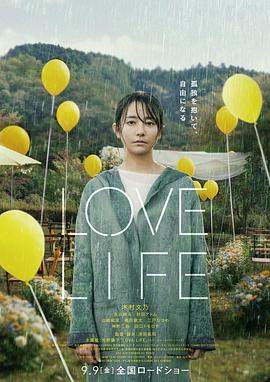
(在letterboxd上用英文和中文混着写的,懒得翻译了,反正电影本身就是关于语言和语言之间的距离的,那就不翻译了。)
Favorite scene - Taeko sitting in the tub, naked, submerged in water, with Park sitting outside of the tub next to her. That was a really tender scene. Also the scene when it was earthquake and Taeko went to protect the last game that her son played. 那个残局的fragility真的很让人印象深刻。
The ending could have been better.... Could have ended with the scene of Taeko standing in the rain at the wedding, with her back turned so that there’s also a distance inserted between us and her. 又是一部电影关于untranslatability, alienation, 以及self 和other之间的ontological distance。 说同一种语言的人和人之间的距离,说韩语与说日语,言语表达和手语(这里的距离让我觉得很神奇,这个距离不只是来自于会不会打手语,而是“打”和“说“之间的一个fundamental difference。一个是language based的语言,一个加入了身体,动作,力度,表情,好像更加affective),能听见和不能听见(比如婚礼那里其他人在随着音乐跳舞时Park无法跟随节奏一起摇摆),还有文化和文化之间的距离,等等等等。除此之外还有比较meta的我们作为观众和电影角色的距离(不知道在想什么,没法access她看到的),因为字幕的缺失而有的距离。通过语言和语言的untranslatability导演想要指向人和人之间的ontological distance,self和other之间的gap必须会是一个鸿沟,是空白,然后问题便是到底该怎么看待这个distance?似乎导演的结论是需要make peace with that gap,love生长于这个空白之中(并非是一种romanticized love),这是他想要表达的,但我觉得结尾并没有很好地carry out这之中的subtlety,而只是用“回归了某种平淡的生活”替代。
Also - Apparently its not a female director & not from a female perspective, even though the main character is female and the director seems to have made the effort to 'touch on' certain female perspective..... Welp. The alienation that he attends to is more of a 'gender neutral' alienation.
But that scene at night, when the shadow of Park's hand doing sign language being cast onto the wall under the moonlight/streetlight. That was beautiful, and so sad. :( I cried multiple times in this film, not because of the film text itself but cuz that alienation because of language and cultural differences is too familiar to be true. Even if we speak the same language, even if we speak the same native language. 爱的确生长于这个距离和空白之中,对他者的爱与对于自我和他者之间的距离的焦虑/恐惧/悲伤交织在一起,这种‘爱’并非浪漫里的爱,这种爱感觉也是synonymous with ethics,这是一种ethical relationship with the Other. Idk, 至少for now我不想deny这种爱的核心对我来说是某种悲伤,but still we can make peace with it no? To appreciate that gap.
One final thought - drive my car, decision to leave, love life. Why films I watched recently all have this theme of untranslatability lol. Oh also that gap between languages, in the words that cannot be translated/meanings lost in translation, it opens up an interesting space in between. A space of much potential! Sign language & body is also another thing can be more explored."<>""}
(在letterboxd上用英文和中文混着写的,懒得翻译了,反正电影本身就是关于语言和语言之间的距离的,那就不翻译了。)
Favorite scene - Taeko sitting in the tub, naked, submerged in water, with Park sitting outside of the tub next to her. That was a really tender scene. Also the scene when it was earthquake and Taeko went to protect the last game that her son played. 那个残局的fragility真的很让人印象深刻。
The ending could have been better.... Could have ended with the scene of Taeko standing in the rain at the wedding, with her back turned so that there’s also a distance inserted between us and her. 又是一部电影关于untranslatability, alienation, 以及self 和other之间的ontological distance。 说同一种语言的人和人之间的距离,说韩语与说日语,言语表达和手语(这里的距离让我觉得很神奇,这个距离不只是来自于会不会打手语,而是“打”和“说“之间的一个fundamental difference。一个是language based的语言,一个加入了身体,动作,力度,表情,好像更加affective),能听见和不能听见(比如婚礼那里其他人在随着音乐跳舞时Park无法跟随节奏一起摇摆),还有文化和文化之间的距离,等等等等。除此之外还有比较meta的我们作为观众和电影角色的距离(不知道在想什么,没法access她看到的),因为字幕的缺失而有的距离。通过语言和语言的untranslatability导演想要指向人和人之间的ontological distance,self和other之间的gap必须会是一个鸿沟,是空白,然后问题便是到底该怎么看待这个distance?似乎导演的结论是需要make peace with that gap,love生长于这个空白之中(并非是一种romanticized love),这是他想要表达的,但我觉得结尾并没有很好地carry out这之中的subtlety,而只是用“回归了某种平淡的生活”替代。
Also - Apparently its not a female director & not from a female perspective, even though the main character is female and the director seems to have made the effort to 'touch on' certain female perspective..... Welp. The alienation that he attends to is more of a 'gender neutral' alienation.
But that scene at night, when the shadow of Park's hand doing sign language being cast onto the wall under the moonlight/streetlight. That was beautiful, and so sad. :( I cried multiple times in this film, not because of the film text itself but cuz that alienation because of language and cultural differences is too familiar to be true. Even if we speak the same language, even if we speak the same native language. 爱的确生长于这个距离和空白之中,对他者的爱与对于自我和他者之间的距离的焦虑/恐惧/悲伤交织在一起,这种‘爱’并非浪漫里的爱,这种爱感觉也是synonymous with ethics,这是一种ethical relationship with the Other. Idk, 至少for now我不想deny这种爱的核心对我来说是某种悲伤,but still we can make peace with it no? To appreciate that gap.
One final thought - drive my car, decision to leave, love life. Why films I watched recently all have this theme of untranslatability lol. Oh also that gap between languages, in the words that cannot be translated/meanings lost in translation, it opens up an interesting space in between. A space of much potential! Sign language & body is also another thing can be more explored.{else}妙子与再婚的丈夫二郎以及儿子敬太本来过着平静而幸福的生活,但是曾一度失踪的聋哑前夫的突然出现,让妙子做出了一个料想不到,没有料到的抉择。曾以《临渊而立》斩获2016年戛纳电影节一种关注单元评委会奖的深田晃司,以女歌手矢野显子的一首同名歌曲为灵感,创作出了这个精彩绝伦的故事。影片至始至终伴随着交流的障碍、行为的不可理解性,擅长叙事的深田晃司以丰富的隐喻和层层递进的强烈戏剧冲突,呈现出他对于爱与人性本质的思考与诠释。入围2022年威尼斯电影节主竞赛单元。{end if}收起
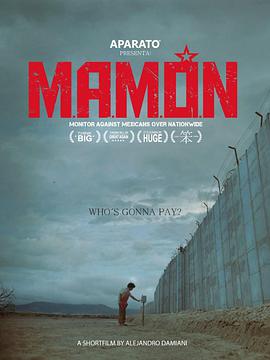 2016
20162016
GuillermoVillegas,Ernestolvarez,HéctorVillalobos,StefaniaGonzalez,PalemónFigueroa,RafaelAnduaga,DarioFigueroa,RamónEpifanio,DavidRamos,EddyVargas,MarielaRueda
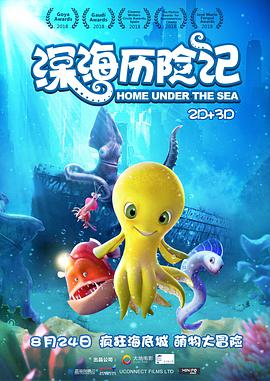 2018
2018HD
张璐,陈红,张云龙,杨希,郭政建,张遥函,胡静,刘琮,敖磊,贾小军,涂小鸦
 1999
19991999
SamVincent...DoubleD,TonySampson...Eddy,山姆·文森特,詹妮斯·乔德,伊尔琳·菲茨杰拉德,大卫·保罗·格罗夫,Matt Hill
 2023
2023HD
RachelCook,RibHillis,XianMikol
 2016
2016HD
佟大为,陈妍希,吕云骢,刘芮麟,温心,潘斌龙,李晓川,张宥浩,赵龙豪,彭梓珩
 2006
20062006
丹尼尔·克雷格,萝玛拉·嘉瑞,伊安·霍姆,凯瑟琳·麦克马克,乔纳森·普雷斯,里克·沃登,尼娜·索珊娅,西恩·帕特维,马可·洛伦兹尼,Radica Jovicic,Raphal Fuchs-Willig,西恩·布瑞特,帕克斯·鲍德温,马克·卡索
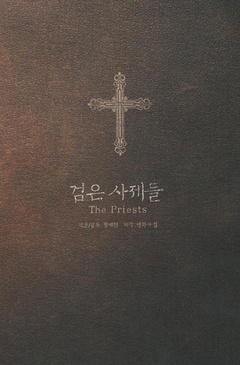 2015
20152015
金允石,姜栋元,朴素丹,安贤彬,李承勋,李豪宰,李正烈,南一祐,金秀珍,孙钟学,曹秀香,闵镇雄,李孝制,孙敏锡
 2017
2017HD
王道铁
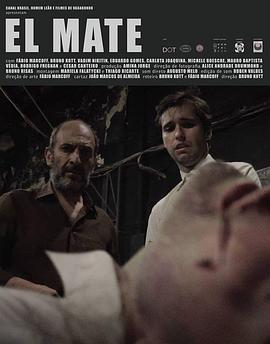 2016
20162016
MauroBaptistaVedia,MichelleBoesche,EduardoGomes,RodrigoFregman,CarlotaJoaquina
 1994
19941994
张学友,范晓萱,周海媚,李晓彤,周树基,向叠,陈治良,王天林
 2012
20122012
武井咲,松坂桃李,木村文乃,山崎贤人,新川优爱,高梨临,青柳翔,长谷川初范,瑛莲,山崎纮菜,贤太,上远野太洸,高冈早纪,藤原令子,麻生祐未,村上弘明
 2007
20072007
渡辺明乃,豊口めぐみ,小室正幸,吉住梢,Scott Hinze,查尔斯·贝克,杰米·马奇,Brett Weaver,谢拉米·李,渡边明乃,Monica Rial,丰口惠美